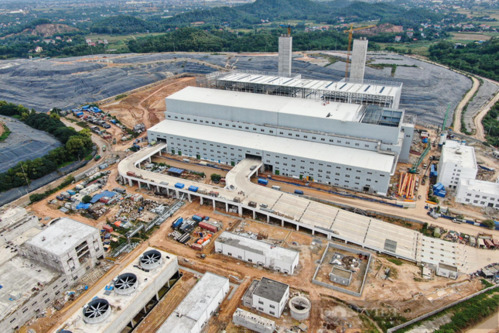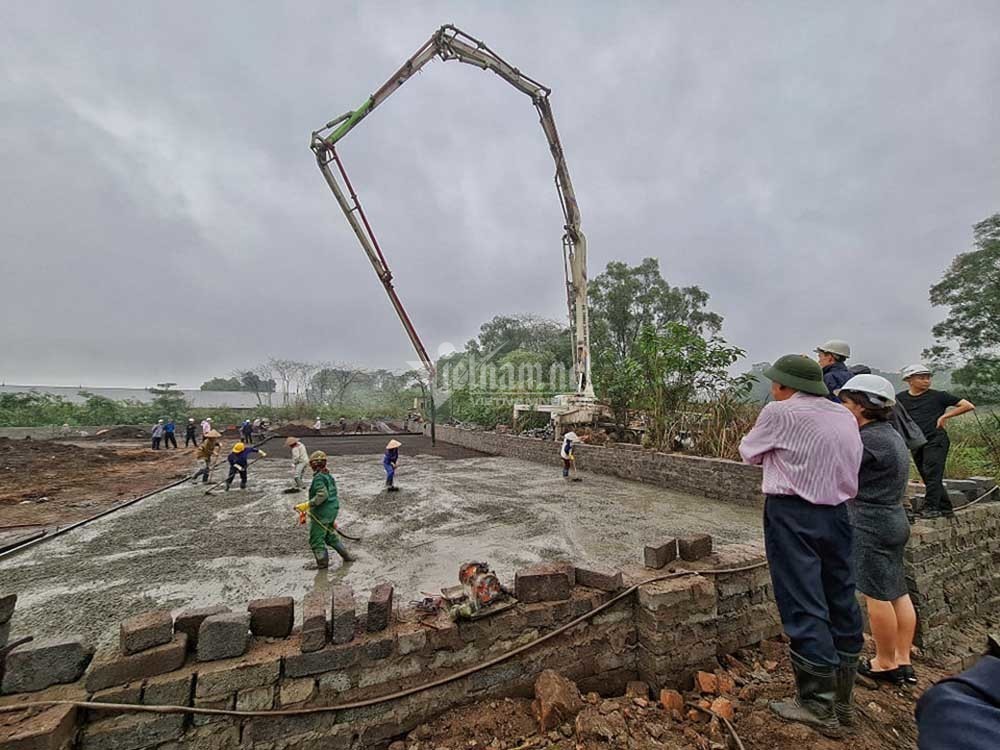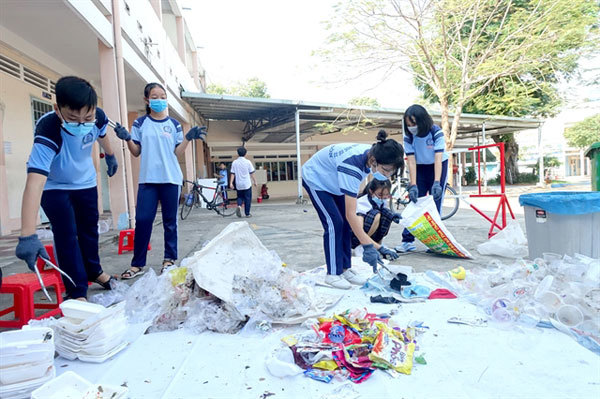- © Copyright of Vietnamnet Global.
- Tel: 024 3772 7988 Fax: (024) 37722734
- Email: [email protected]
waste treatment
Update news waste treatment
Domestic waste fee to be charged based on volume
Solid waste classification at source and volume-based waste fee collection must be implemented by 2024, according to the roadmap of the new Environment Law which took effect on January 1, 2022.
Concerns over discarded face masks and the circular economy
How to treat used face masks is a new problem emerging during the fight against the Covid-19 pandemic.
Vietnam’s largest waste-to-power plant to become operational soon
A plant to generate electricity from waste in Hanoi, with a capacity of handling 4,000 tonnes of solid refuse daily, is expected to become operational by the end of this month.
HCM City to treat all domestic waste with incineration, recycling by 2030
The HCM City Department of Natural Resources and Environment targets increasing the volume of domestic waste treated with incineration and recycling technologies to at least 80 per cent by 2025 and 100 per cent by 2030.
Finding sustainable waste management solutions for Hanoi
The capital Hanoi is one of the biggest and most modern cities in the country, but its waste treatment capacity does not match the growth of the city.
Solar cells, wind turbine blades: the waste of the next decade
Wind and solar power plants will emit huge amounts of waste of up to hundreds of thousands of tons in the next 10 years.
Zero waste programme in Vietnam – from movement to habit
Zero waste programme is taking shape in Vietnam to adopt a more eco-friendly lifestyle. Let’s find out how the green initiative has changed people’s thinking and habit.
Where will waste from wind, solar power plants go?
Wind and solar power has been developing at lightening speed in Vietnam recently. Now is the time to think about dealing with the equipment when it’s life cycle ends.
HCM City needs advanced waste-treatment technologies, say experts
HCM City will need to adopt advanced energy-efficient waste-treatment technologies that safeguard the environment, and seek recycling technology to achieve a circular economy, experts said.
Hanoi’s largest landfill suspends operation
Hanoi City’s largest dump site, Nam Son, has temporarily closed down from today, November 2, due to overload and fears over environmental pollution.
Trading scraps for groceries
As a means to promote environmental protection while supporting the community through the pandemic, grocery stalls in Van Mieu Ward, Dong Da District, Hanoi are letting people trade scraps for food.
Hanoi faces waste storage crisis
Xuan Son Landfill in Hanoi's Son Tay Town stopped receiving waste from October 6 due to overloading. Local authorities have had to move all rubbish to the Nam Son Landfill in Soc Son District which is also reaching full capacity.
Vietnam aims for safe treatment of 100 per cent solid waste in 2050
The Vietnamese Government has set a goal to raise the rate of solid waste collected and safely treated to 100 per cent in 2050 as part of the freshly approved national strategy on green growth for 2021-2030.
Big steel manufacturer fined VND565 million, forced to settle pollution
Thai Nguyen has decided to impose a fine of VND565 million on violations of the environmental protection law, following a series of VietNamNet’s reports last March.
Norway provides US$1.3 million for waste management project in Vietnam
The Government of Norway will provide US$1.3 million for a project to scale up integrated and inclusive waste management models by empowering the informal sector and fostering the circular economy in Vietnam.
‘Green’ school promotes waste value
Primary school of Tran Dai Nghia in Da Nang began a recycling kitchen system to reduce 60 per cent of waste released each month, saving VND1 million (US$43) in garbage treatment fees, while producing 100kg of nutritional compost each month.
Roadmap needed to develop ‘clean’ auto industry
To develop electric vehicle industry, charging stations, batteries and reasonable prices are all needed. But an overall policy for these issues is not yet available in Vietnam, particularly battery waste disposal and treatment.
New app connects scrap collectors, buyers
A set of innovative applications named VECA launched last month has allowed users to call scrap collectors in HCM City.
HCM City to have 80% of waste sorted at source
The HCM City Department of Natural Resources and Environment has taken steps to ensure that 100% of its domestic solid waste is collected and treated and at least 80 per cent of solid household waste is classified at source by 2025.
Vietnam pilots initiatives to reduce plastic waste and marine litter
Vietnamese authorities and international organisations discussed ways to reduce plastic waste and marine litter in Vietnam at a workshop held in Hanoi on Friday.



















